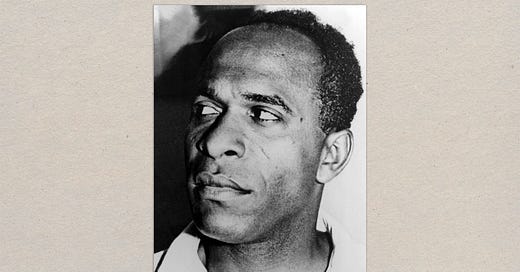Frantz Fanon, Oracle of Decolonization

Frantz Fanon is mandatory reading on campuses across America. (Photo: Everett Collection Historical / Alamy Stock Photo)
The writer who coined the term “decolonization” thought he was talking to “the wretched of the earth.” Instead, his work was read by elites—to disastrous effect.
128
Eight days after the worst massacre against Jews since the Holocaust, Russell Rickford gave a speech to a pro-Palestinian protest, in which he acknowledged that he was a person who abhorred violence and the targeting of civilians. And yet, he said the Hamas atrocities meant that Palestinians “were able to breathe for the first time in years. It was exhi…
Enjoying the story?
Enter your email to read this article and receive our daily newsletter.
Already have an account?
Sign In


